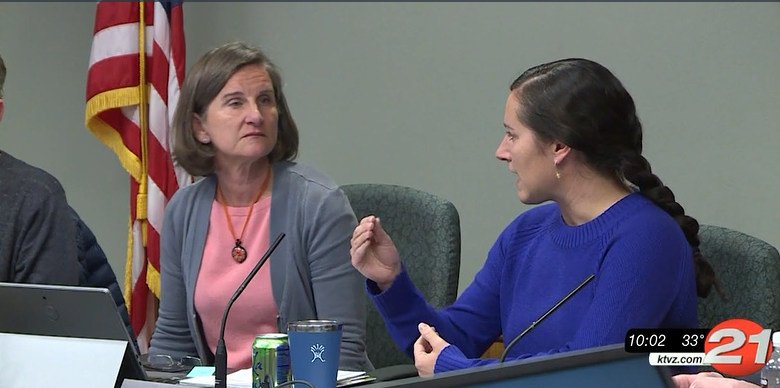Bend councilors OK Climate Action Plan in split vote

(Adding video, councilors' comments)
Vote was 5-2 despite rollback on controversial element; transportation bond measure taking shape
BEND, Ore. (KTVZ) -- After years of work and a recent controversy, Bend city councilors on Wednesday night adopted a Climate Action Plan for the city, a wide-ranging blueprint aimed at reducing greenhouse gases and the community's carbon footprint.
But despite a recent move to drop the disputed mandatory element of a "home energy score" that was to be conducted when any homes are sold, the vote on the Community Action Plan was still not unanimous, as councilors Bill Moseley and Justin Livingston voted no.
Livingston voted against the plan, saying he feels climate change is not just a city issue.
“I don’t believe that is a core city function, to really get into how people live their lives," Livingston said. "Climate change is an issue that is better dealt with at a state or federal level, or as a globe.”
Moseley also tried to get councilors to make a late change, proposing the plan's accompanying findings be amended to move from the home energy score to instead state a direction for the city to help owners of older, less energy-efficient homes get those renovations done. Some agreed, but thought such steps could happen as part of the work still to be done, and the amendment failed on a 4-3 vote.
Councilman Bruce Abernethy said he voted in favor of the plan because of its variety.
“From an individual level, anything from composting, electrical cars or even solar panels," Abernethy said. "There is something in here for everybody.”
On another big topic, councilors and a special council-citizen subcommittee again dove into the lists of projects and dollar signs as they worked at how to best craft a successful transportation bond measure likely headed for the May ballot.
The goal is to hit a better balance than a gas tax that went down to defeat a few years ago, with a mix of major projects at intersections and on key corridors to ease congestion, improve east-west connectivity and boost safety across the city.
There are so many projects and ways to balance them, the discussion took some time. There are concerns among councilors that too much (or too little) attention to alternative travel modes -- from bike lanes and sidewalks to a new transit hub or hubs -- could cost voter support. But there is consensus emerging on improving key "midtown crossings," for example, and moving ahead with projects to improve safety of neighborhood streets.
City Manager Eric King said that along with a brief, unscientific online survey now underway, a more formal survey will be conducted of voters in coming weeks on two options -- a shorter, roughly $150 million list of work and a broader package that gets more done and originally was pegged at $250 million, but might instead be closer to $275 million.
Armed with the survey results, councilors are expected to decide in January whether to go to the May ballot, and for how much.
Councilors also hope to make sure voters understand that there are many other projects, with other funding sources, that are underway or will be coming -- in other words, that the long list of work needed to fix and expand roads in the fast-growing city doesn't hinge solely on property owners' wallets.
"We have so much work to do on our streets," Mayor Sally Russell said. "And as you know, we have no consistent funding stream for the things our community needs, has needed for a long time. So it's a step-by-step process."
